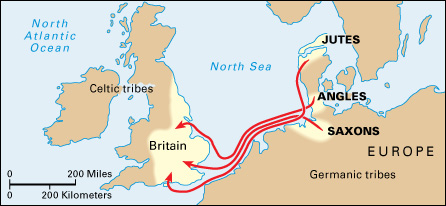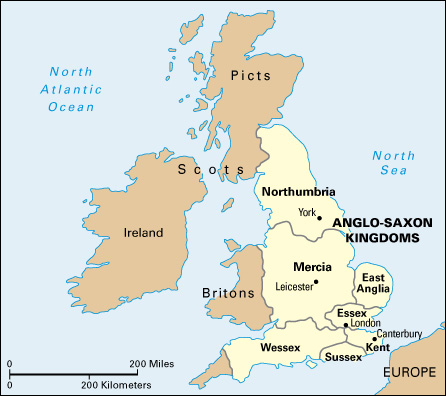Anglo-Saxons << ANG gloh SAK suhnz >> were members of the Germanic tribes that settled in what is now England in the A.D. 400’s and 500’s. These tribes included primarily the Angles, the Saxons, and the Jutes. According to tradition, a British king named Vortigern invited the Germanic tribes to help him drive back the invading Picts and Scots. But the allies quarreled, and soon the Germanic tribes began to drive out the native Britons. By the end of the 500’s, the Angles, Saxons, and Jutes had occupied nearly all of southern and eastern Britain.

At first there were many Anglo-Saxon kingdoms, and wars between them were frequent. By the 700’s, there were seven principal kingdoms: East Anglia, Essex, Kent, Mercia, Northumbria, Sussex, and Wessex. Together, they are known as the Heptarchy, which means rule of seven. By the late 800’s, all the kingdoms had come under attack from Danish Vikings. Only Wessex, under Alfred the Great, survived the invasion. Alfred eventually captured London and other areas. In the 900’s, Alfred’s descendants defeated the Vikings and incorporated the Viking territory into their kingdom. This new and larger kingdom was called England, a word that came from Anglo-Saxon words meaning Angle folk or land of the Angles.

The Anglo-Saxons’ language, Old English, was the ancestor of all later forms of the English language. The grammar and sound patterns of modern English trace back to Old English, and so do many of its words. These words descend from the dialects that developed in central England. The southern dialect became the chief literary language of Anglo-Saxon England and was used mainly in writing verse.
